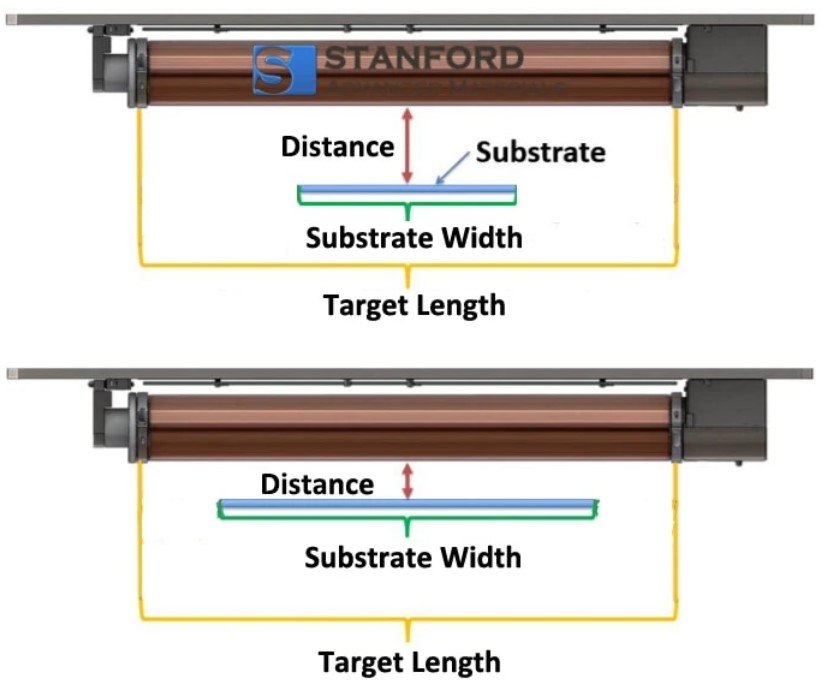Sputtering targets are materials that are indispensable during the sputtering process in the coating industry. Uniformity is an indicator used to value the quality of the coated film. Usually, there are two factors that determine the coating uniformity: the length of the targets and the distance between the target and the substrate.

Length of the sputtering targets
The length of the target is an important factor in producing a coating with good uniformity, because it decides which construction method to be used. It’s better you consider the length of certain monolithic targets during the process requirements planning phase in order to achieve good uniformity.
Suitable target length depends on the orientation of the sputtering target materials and how much weight the target flanges can support without plastically deforming or breaking which can occur for brittle materials. For example, ceramic targets are usually brittle and usually need to be bonded with a backing tube, so the length of ceramic targets cannot be too long, otherwise, they will easily break into pieces. In addition, people usually joined small ceramic targets together to produce the large-area ceramic thin film in the case.
Distance between the target and Substrate
The other factor to define the achievable uniformity of the obtained film is the distance between the sputtering target and the substrate. The larger the distance is, the poorer the uniformity is achieved on the substrate. To be noted, the distance is not stable during the process: it keeps increasing as the target materials keep being consumed and eroding. Therefore, generally speaking, the density of the coating is not uniform, and the worst process uniformity occurs when the sputtering ends.
In general, the distance between the target and the substrate is measured before the start of sputtering, so that the uniformity we calculated is theoretically the best, or the most achievable. But in fact, at the end of the sputtering, the initial uniformity specification could not be reached due to the increase in the distance. The specific difference depends on the initial target thickness.

